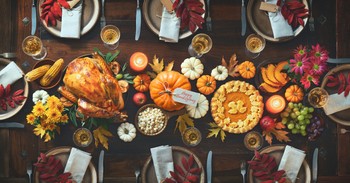9 Examples of Thanksgiving in the Bible

With promises of really great deals on Black Friday littered between college football timeouts, the meaning of Thanksgiving sometimes gets missed. We pause to give thanks for the food, family members and friends gathered around the table in the midst of preparing elaborate meals and navigating family relations. But giving thanks isn’t a practice reserved for a single day each year. It has deeper spiritual significance and benefits that ring true long after the leftovers are consumed.
Gratitude is a heart tenderizer. It keeps our eyes focused on God, the source of all good gifts. It keeps our hearts open, and with open hearts, the fruit of the Spirit—love, joy, peace, patience, kindness, goodness, gentleness, and self-control—have ample room to grow.
Here are nine examples of thanksgiving in the Bible that have nothing to do with pilgrims or Native Americans, turkey, or touchdowns:
Photo credit: ©Unsplash/Hush Naidoo

1. Thanksgiving When Something Big Happens
The Red Sea just parted. Pharaoh’s army disappeared in its waves. And the Israelites stand in awe on the other side of slavery — free at last, free at last. Moses and his sister, Miriam sing a song (the “song of the sea”) about the victory, including these lines from Exodus 15:2 (NIV):
The Lord is my strength and my defense; he has become my salvation. He is my God, and I will praise him, my father’s God, and I will exalt him.
The song of the sea is one of the oldest surviving texts describing the Exodus, possibly written as many as three thousand years ago. When something significant happens in our lives, it seems embedded in our DNA to celebrate with song. Songs become landmarks in our memory, resurrecting decades later and returning delight to our eyes, thanksgiving to our hearts.
The Song of Moses and Miriam
Then Moses and the Israelites sang this song to the LORD: “I will sing to the LORD, for he is highly exalted. Both horse and driver he has hurled into the sea. “The LORD is my strength and my defense; he has become my salvation. He is my God, and I will praise him, my father’s God, and I will exalt him. The LORD is a warrior; the LORD is his name. Pharaoh’s chariots and his army he has hurled into the sea. The best of Pharaoh’s officers are drowned in the Red Sea. The deep waters have covered them; they sank to the depths like a stone. Your right hand, LORD, was majestic in power. Your right hand, LORD, shattered the enemy. “In the greatness of your majesty you threw down those who opposed you. You unleashed your burning anger; it consumed them like stubble. By the blast of your nostrils the waters piled up. The surging waters stood up like a wall; the deep waters congealed in the heart of the sea. The enemy boasted, ‘I will pursue, I will overtake them. I will divide the spoils; I will gorge myself on them. I will draw my sword and my hand will destroy them.’ But you blew with your breath, and the sea covered them. They sank like lead in the mighty waters. Who among the gods is like you, LORD? Who is like you— majestic in holiness, awesome in glory, working wonders? “You stretch out your right hand, and the earth swallows your enemies. In your unfailing love you will lead the people you have redeemed. In your strength you will guide them to your holy dwelling. The nations will hear and tremble; anguish will grip the people of Philistia. The chiefs of Edom will be terrified, the leaders of Moab will be seized with trembling, the people of Canaan will melt away; terror and dread will fall on them. By the power of your arm they will be as still as a stone— until your people pass by, LORD, until the people you bought pass by. You will bring them in and plant them on the mountain of your inheritance— the place, LORD, you made for your dwelling, the sanctuary, Lord, your hands established. “The LORD reigns for ever and ever.” When Pharaoh’s horses, chariots and horsemen went into the sea, the LORD brought the waters of the sea back over them, but the Israelites walked through the sea on dry ground. Then Miriam the prophet, Aaron’s sister, took a timbrel in her hand, and all the women followed her, with timbrels and dancing. Miriam sang to them: “Sing to the LORD, for he is highly exalted. Both horse and driver he has hurled into the sea.”
To help you in thanking God, we created a 30 Days of Gratitude Prayer Guide HERE. Download and print this guide to keep with you as a reminder of God's love and promises.
Photo credit: ©Unsplash/AlexWise
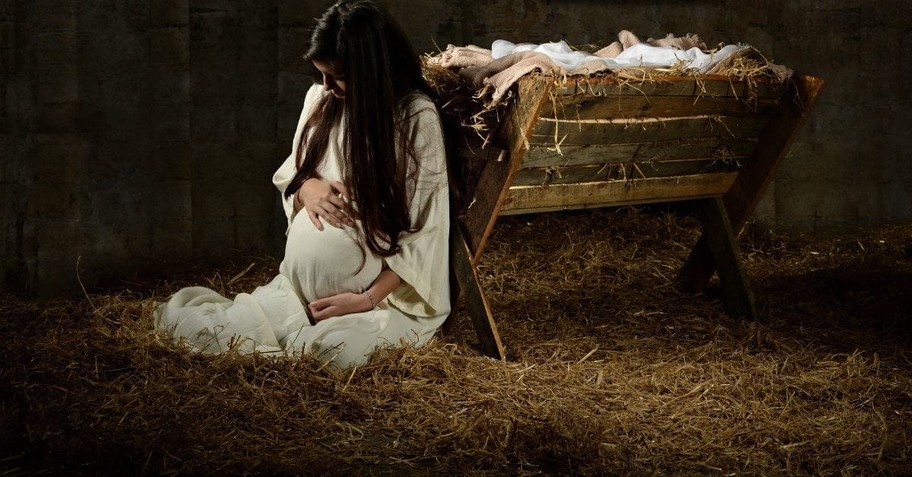
2. Thanksgiving in the Face of the Unknown
In times of uncertainty, it may seem strange to turn to gratitude, but think about it: when else do we need to rely on God most except when faced with the unknown? Mary’s song, recorded after her encounter with her cousin Elizabeth, is a perfect example of the kind of praise we can give when the future looks uncertain. For being pregnant out of wedlock, Mary could have been shunned. Mary could have been cast out by her family. Mary could have been condemned to death. And yet Mary gives thanks for this new thing, this unexpected gift. You can read her song in Luke 1:46-55.
Mary’s Song
And Mary said: “My soul glorifies the Lord and my spirit rejoices in God my Savior, for he has been mindful of the humble state of his servant. From now on all generations will call me blessed, for the Mighty One has done great things for me — holy is his name. His mercy extends to those who fear him, from generation to generation. He has performed mighty deeds with his arm; he has scattered those who are proud in their inmost thoughts. He has brought down rulers from their thrones but has lifted up the humble. He has filled the hungry with good things but has sent the rich away empty. He has helped his servant Israel, remembering to be merciful to Abraham and his descendants forever, just as he promised our ancestors.” Mary stayed with Elizabeth for about three months and then returned home.
Photo credit: ©Thinkstock/ginosphotos
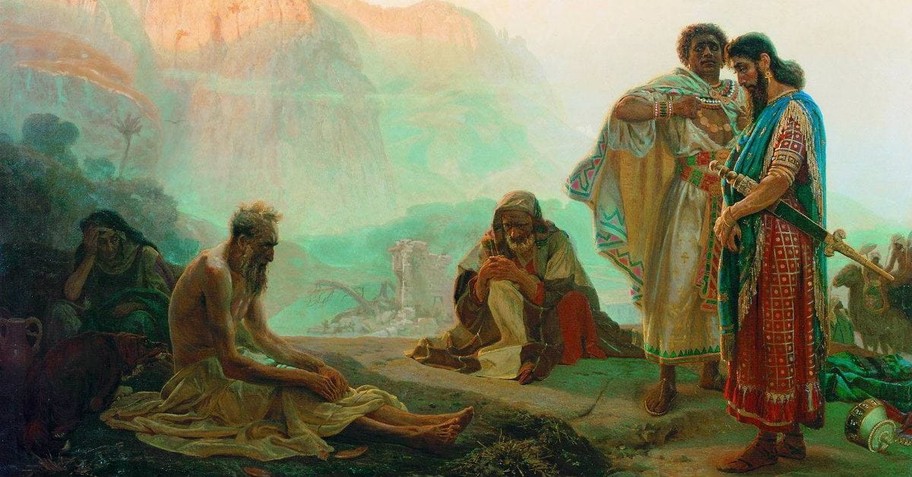
3. Thanksgiving in Lament
Over and over again, the psalms show us what it means to be thankful, even in times of fear, sadness, and grief. Gratitude draws our eyes away from the pain, terror, and anxiety of loss and helps us focus on the gifts of this world, moving us forward along the healing process.
After he loses his family, his property, and his health, Job, the sufferer of sufferers, cries out, “Naked I came from my mother’s womb, and naked I will depart. The Lord gave and the Lord has taken away; may the name of the Lord be praised.” (Job 1:21, NIV)
Psalms that demonstrate this include Psalm 22 (which is what Jesus quoted from the cross when he cried out, “My God, my God, why have you forsaken me?”) and Psalm 69.
Psalm 22 starts in anguish and suffering, but takes a turn toward the end when David writes,
"I will declare your name to my people; in the assembly I will praise you. You who fear the LORD, praise him! All you descendants of Jacob, honor him! Revere him, all you descendants of Israel! For he has not despised or scorned the suffering of the afflicted one; he has not hidden his face from him but has listened to his cry for help."
Psalm 69:29-36 reads:
"But as for me, afflicted and in pain— may your salvation, God, protect me. I will praise God’s name in song and glorify him with thanksgiving. This will please the LORD more than an ox, more than a bull with its horns and hooves. The poor will see and be glad— you who seek God, may your hearts live! The LORD hears the needy and does not despise his captive people. Let heaven and earth praise him, the seas and all that move in them, for God will save Zion and rebuild the cities of Judah. Then people will settle there and possess it; the children of his servants will inherit it, and those who love his name will dwell there."
Photo credit: ©WikimediaCommons/IlyaRepin
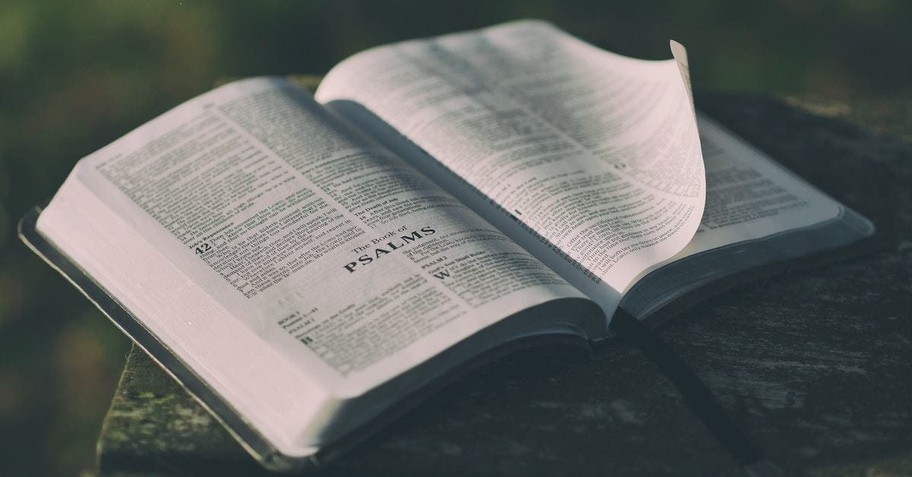
4. Thanksgiving When You Don’t Feel Like It
Sometimes God feels distant or silent. When this happens in my life, the full emotions of joy, empathy, grief, and anger seem to level out to monotony, routine, and boredom. If God seems distant, the desire to praise him and give thanks for the routine just isn’t as exciting as the other seasons, when things are good, life is full, joy is easy.
Yet again, the Bible shows us thanksgiving as a response to God, even when he’s silent, even when we don’t feel like it. This sacrifice of thanksgiving — and it is a sacrifice, mustering up the habit of praise if your heart isn’t in it — drags you, step by step, back into the presence of the Lord.
Read Psalm 13 if you’re feeling distant from God.
For the director of music. A psalm of David.
How long, LORD? Will you forget me forever? How long will you hide your face from me? How long must I wrestle with my thoughts and day after day have sorrow in my heart? How long will my enemy triumph over me? Look on me and answer, LORD my God. Give light to my eyes, or I will sleep in death, and my enemy will say, “I have overcome him,” and my foes will rejoice when I fall. But I trust in your unfailing love; my heart rejoices in your salvation. I will sing the LORD’s praise, for he has been good to me.
Photo credit: ©Unsplash/AaronBurden

5. Thanksgiving in Contrast to Our Current Circumstances
There are also times when life just doesn’t seem like a season for gratitude. Maybe you have a chronic illness. Maybe you’re caring for an elderly parent or a special needs child. Thankfulness for these circumstances - even when each day brings fresh challenges — helps us to find hope and meaning. Paul writes to the church in Rome, “Not only so, but we also glory in our sufferings, because we know that suffering produces perseverance; perseverance, character; and character, hope. And hope does not put us to shame, because God’s love has been poured out into our hearts through the Holy Spirit, who has been given to us” (Romans 5:3-5).
Similarly in Philippians 1:12-21 Paul wrote from prison,
Now I want you to know, brothers and sisters, that what has happened to me has actually served to advance the gospel. As a result, it has become clear throughout the whole palace guard and to everyone else that I am in chains for Christ. And because of my chains, most of the brothers and sisters have become confident in the Lord and dare all the more to proclaim the gospel without fear. It is true that some preach Christ out of envy and rivalry, but others out of goodwill. The latter do so out of love, knowing that I am put here for the defense of the gospel. The former preach Christ out of selfish ambition, not sincerely, supposing that they can stir up trouble for me while I am in chains. But what does it matter? The important thing is that in every way, whether from false motives or true, Christ is preached. And because of this I rejoice. Yes, and I will continue to rejoice, for I know that through your prayers and God’s provision of the Spirit of Jesus Christ what has happened to me will turn out for my deliverance. I eagerly expect and hope that I will in no way be ashamed, but will have sufficient courage so that now as always Christ will be exalted in my body, whether by life or by death. For to me, to live is Christ and to die is gain.
Photo credit: ©Unsplash/NicoleHoneywill
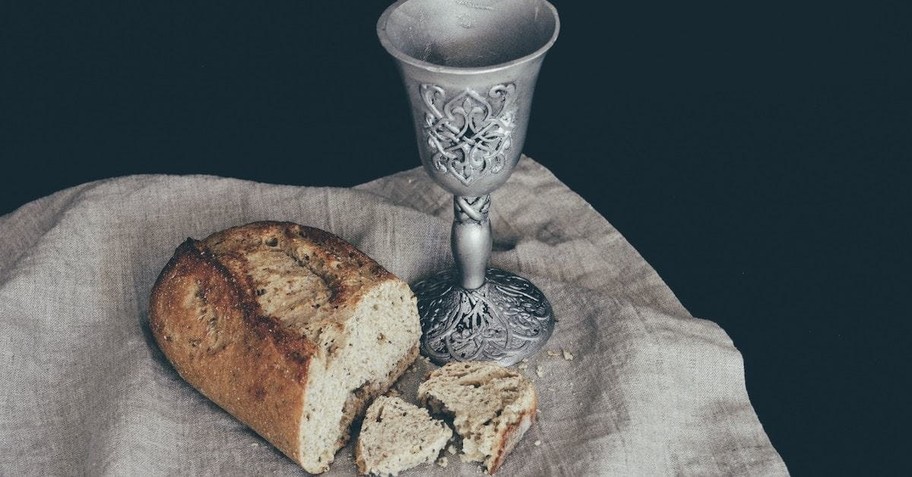
6. Thanksgiving as a Community
Gratitude collectively as a family or a community is a tremendous equalizer — when differences of political or religious or cultural opinion and stance are present, gratitude helps us to focus on the areas of our relationships that matter the most. It’s hard to be grateful for each other and still wield our theological, political, and cultural weapons.
The Jewish tradition includes several feasts as a form of remembrance. The Passover meal with Jesus and his apostles, the Feast of Tabernacles, and more are all examples in Scripture of the community of believers coming together to remember the past and respond in gratitude to God. Read about the Last Supper in Mark 14:
The Last Supper
On the first day of the Festival of Unleavened Bread, when it was customary to sacrifice the Passover lamb, Jesus’ disciples asked him, “Where do you want us to go and make preparations for you to eat the Passover?” So he sent two of his disciples, telling them, “Go into the city, and a man carrying a jar of water will meet you. Follow him. Say to the owner of the house he enters, ‘The Teacher asks: Where is my guest room, where I may eat the Passover with my disciples?’ He will show you a large room upstairs, furnished and ready. Make preparations for us there.” The disciples left, went into the city and found things just as Jesus had told them. So they prepared the Passover. When evening came, Jesus arrived with the Twelve. While they were reclining at the table eating, he said, “Truly I tell you, one of you will betray me—one who is eating with me.” They were saddened, and one by one they said to him, “Surely you don’t mean me?” “It is one of the Twelve,” he replied, “one who dips bread into the bowl with me. The Son of Man will go just as it is written about him. But woe to that man who betrays the Son of Man! It would be better for him if he had not been born.” While they were eating, Jesus took bread, and when he had given thanks, he broke it and gave it to his disciples, saying, “Take it; this is my body.” Then he took a cup, and when he had given thanks, he gave it to them, and they all drank from it. “This is my blood of the covenant, which is poured out for many,” he said to them. “Truly I tell you, I will not drink again from the fruit of the vine until that day when I drink it new in the kingdom of God.” When they had sung a hymn, they went out to the Mount of Olives.
Photo credit: ©Unsplash/DebbyHudson

7. Thanksgiving for Others
At the start of each of the letters from Paul sent throughout the first century following Jesus’ resurrection, Paul expresses his thanks for the people. “First, I thank my God through Jesus Christ for all of you, because your faith is being reported all over the world,” Paul writes in Romans 1:8. “I always thank my God for you because of his grace given you in Christ Jesus,” he writes to the church of Corinth in 1 Corinthians 1:4. “I thank my God every time I remember you,” he tells the church in Philippi in Philippians 1:3. “I always thank my God as I remember you in my prayers, because I hear about your love for all his holy people and your faith in the Lord Jesus,” he says to the folks addressed in Philemon 1:4-5.
There’s something about expressing your gratitude for a person — not just saying thank you when they do something, but saying thank you for just being — that forms a bond of trust in your relationship. It acknowledges a particular characteristic about a person that raises their esteem in the way Paul says we ought to encourage one another or build one another up. Gratitude for another person may be one of the most impactful and practical ways we can build one another up.
Photo credit: ©Unsplash/DuyPham

8. Thanksgiving Rituals and Touchstones
After Joshua and the Israelites crossed the Jordan on dry ground, Joshua instructed the chief priests of the 12 tribes of Israel to gather up 12 stones from the Jordan. They set up these stones at Gilgal. Then Joshua told the Israelites, “In the future when your descendants ask their parents, ‘What do these stones mean?’ tell them, ‘Israel crossed the Jordan on dry ground.’ For the Lord your God dried up the Jordan before you until you had crossed over” (Joshua 4:21-23).
The traditions we enact with friends and family are perhaps one of the most obvious forms of thanksgiving. Traditions performed together spotlight seasons of our lives in which we’ve seen God active and present in our lives. They hold the record of years past, when the children were younger, when we all were together, when great-grandpa was alive, and so on. They provide opportunities to reminisce.
When we “always” do this particular act (praying together before a Thanksgiving meal, eating together at Aunt Sue’s, stating what we’re grateful for, making the traditional turkey meal or partaking in grandma’s passed down recipe for pumpkin pie), we create a spirit of unity, one that connects us to the past and manifests thankfulness.
Photo credit: ©Unsplash/MathieuTurle
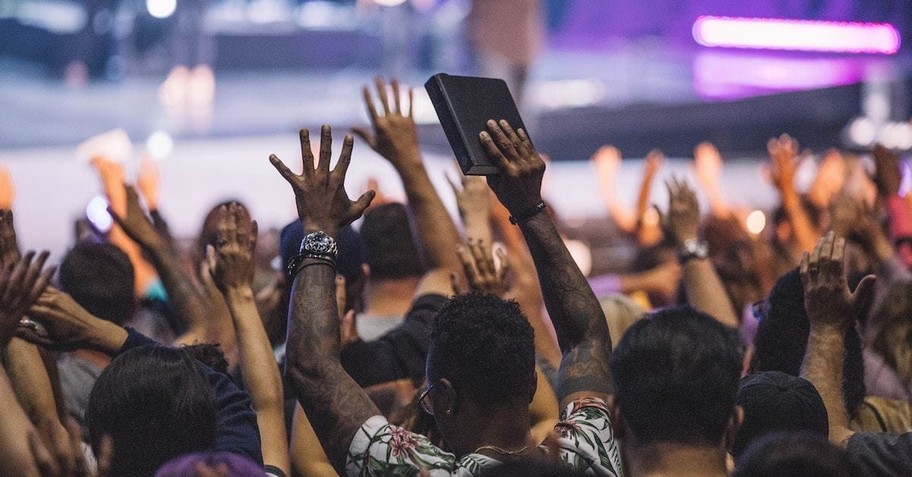
9. Thanksgiving in God’s Presence
And then there’s Sunday morning. Then there are the times we gather together as a community of believers. Then there are the times we walk in the woods, wander along the coast, stare into the sky, watch the leaves shift in the trees, and wonder, awe, and joy bubble up. Wherever you find yourself deeply connected to God — in nature, in a chapel, in your backyard, in silent meditation — is an opportunity for gratitude.
When the Ark of the Covenant is brought back to Jerusalem, the whole population of Israel sings its thanks. “Give thanks to the Lord for he is good, his love endures forever.” (1 Chronicles 16:34). When we are in alignment with God, walking in the Way, it’s a time to give thanks. Life is full, life is good, and his love endures forever.
Revelation 7:9-12 points forward,
The Great Multitude in White Robes
After this I looked, and there before me was a great multitude that no one could count, from every nation, tribe, people and language, standing before the throne and before the Lamb. They were wearing white robes and were holding palm branches in their hands. And they cried out in a loud voice: “Salvation belongs to our God, who sits on the throne, and to the Lamb.” All the angels were standing around the throne and around the elders and the four living creatures. They fell down on their faces before the throne and worshiped God, saying: “Amen! Praise and glory and wisdom and thanks and honor and power and strength be to our God for ever and ever. Amen!”
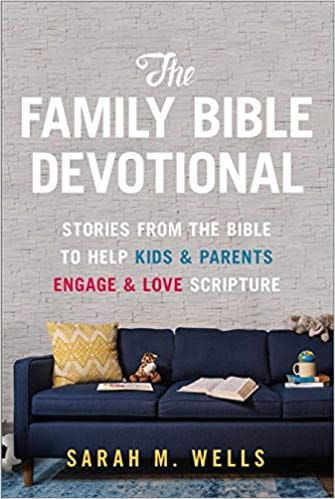
Photo credit: ©Unsplash/KaylaHarris
Originally published October 25, 2021.


